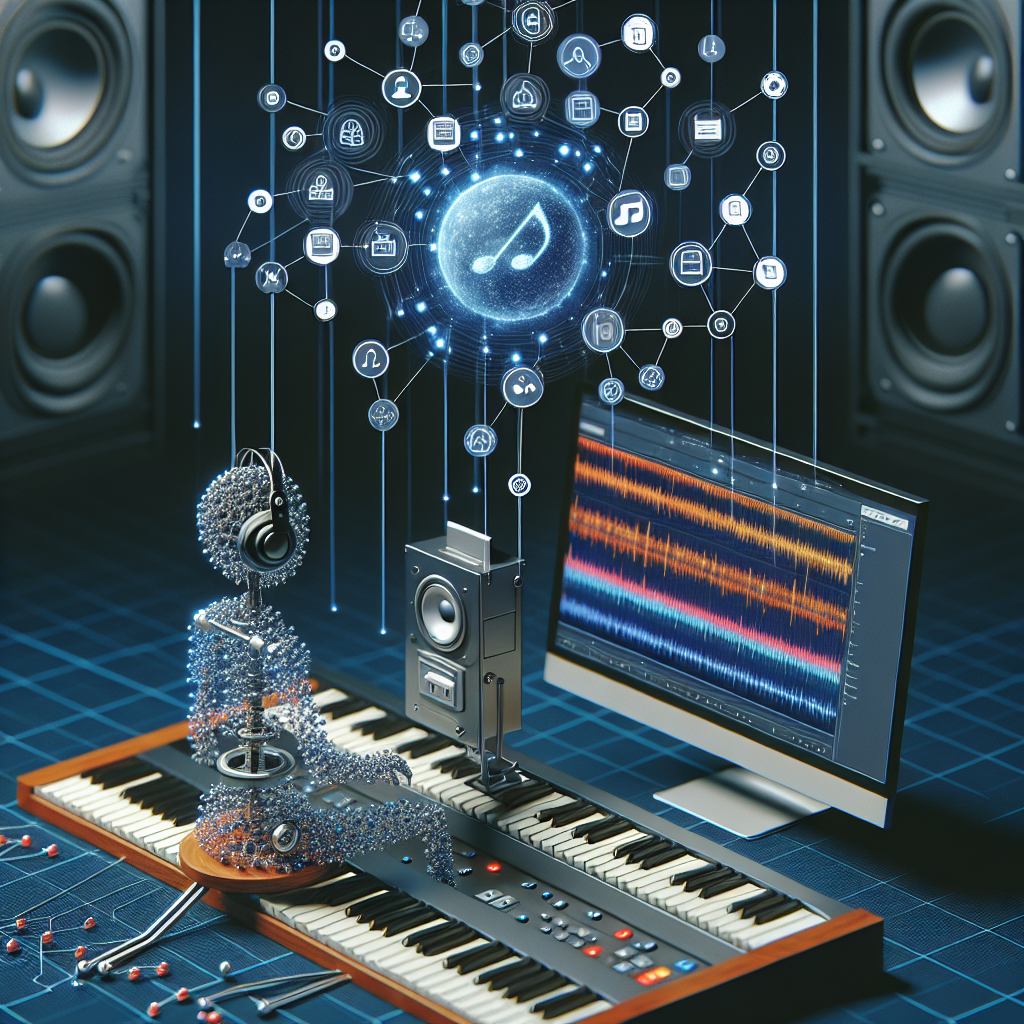AI in Music: From Composition to Distribution
Artificial Intelligence (AI) has transformed industries across the board, and the music industry is no exception. From composition to distribution, AI is revolutionizing the way music is created, produced, and consumed. In this article, we will explore the various applications of AI in music and how it is reshaping the industry as we know it.
Composition
One of the most exciting applications of AI in music is in the field of composition. AI algorithms can analyze vast amounts of music data to generate new pieces of music that sound like they were composed by humans. This technology, known as generative AI, has been used to create original compositions in a variety of genres, from classical to electronic music.
One of the most famous examples of AI-generated music is “Daddy’s Car,” a song created by AI in the style of The Beatles. The song was produced by Sony CSL Research Laboratory using a machine learning algorithm trained on a database of Beatles songs. The result was a catchy, Beatles-esque tune that sounded surprisingly authentic.
AI-generated music is not limited to imitating existing artists. Some AI algorithms can create entirely new genres of music that push the boundaries of what is considered “normal” in the music industry. These innovative compositions challenge traditional notions of music and open up new possibilities for artists and listeners alike.
Production
AI is also revolutionizing the production process in the music industry. From mixing and mastering to sound design, AI algorithms can automate time-consuming tasks and improve the quality of the final product. For example, AI-powered software can analyze audio tracks to identify and remove noise, adjust levels, and enhance the overall sound quality.
AI can also help musicians and producers explore new creative possibilities by generating novel sounds and effects. For example, AI algorithms can create unique synthesizer patches, drum patterns, and vocal harmonies that push the boundaries of traditional music production. This technology enables artists to experiment with new sounds and styles that were previously impossible to achieve.
Distribution
AI is also transforming the way music is distributed and consumed. Streaming platforms like Spotify and Apple Music use AI algorithms to recommend music to listeners based on their listening habits and preferences. These recommendation systems analyze vast amounts of data to create personalized playlists that introduce listeners to new artists and genres.
AI is also being used to analyze music trends and predict which songs will be successful in the market. This technology helps record labels and artists make informed decisions about marketing and promotion strategies, ultimately increasing the chances of a song becoming a hit.
Frequently Asked Questions
Q: Can AI truly create music that is indistinguishable from human compositions?
A: While AI-generated music has made significant strides in recent years, it is still not quite at the level of human compositions. AI algorithms are excellent at imitating existing styles and genres, but they struggle to create truly original and innovative music. However, as AI technology continues to advance, we may see AI-generated music that is indistinguishable from human compositions in the future.
Q: How does AI impact the role of musicians and artists in the music industry?
A: AI has the potential to both augment and challenge the role of musicians and artists in the music industry. On one hand, AI can help musicians and producers create music more efficiently and explore new creative possibilities. On the other hand, AI-generated music may pose a threat to the livelihood of musicians and artists by reducing the need for human composers and performers. Ultimately, the impact of AI on musicians and artists will depend on how the technology is integrated into the industry.
Q: Is AI a threat to the authenticity and creativity of music?
A: Some critics argue that AI-generated music lacks the authenticity and creativity of human compositions. While it is true that AI algorithms can imitate existing styles and genres, they struggle to create music that is truly original and innovative. However, AI can also be a tool for artists to experiment with new sounds and styles that push the boundaries of traditional music. Ultimately, the impact of AI on the authenticity and creativity of music will depend on how artists choose to use the technology.
In conclusion, AI is transforming the music industry in profound ways, from composition to distribution. While AI-generated music has made significant strides in recent years, it is still not quite at the level of human compositions. However, AI has the potential to augment and challenge the role of musicians and artists in the industry, ultimately reshaping the way music is created, produced, and consumed. As AI technology continues to advance, we can expect to see even more innovations in the field of music that push the boundaries of what is possible in the industry.

